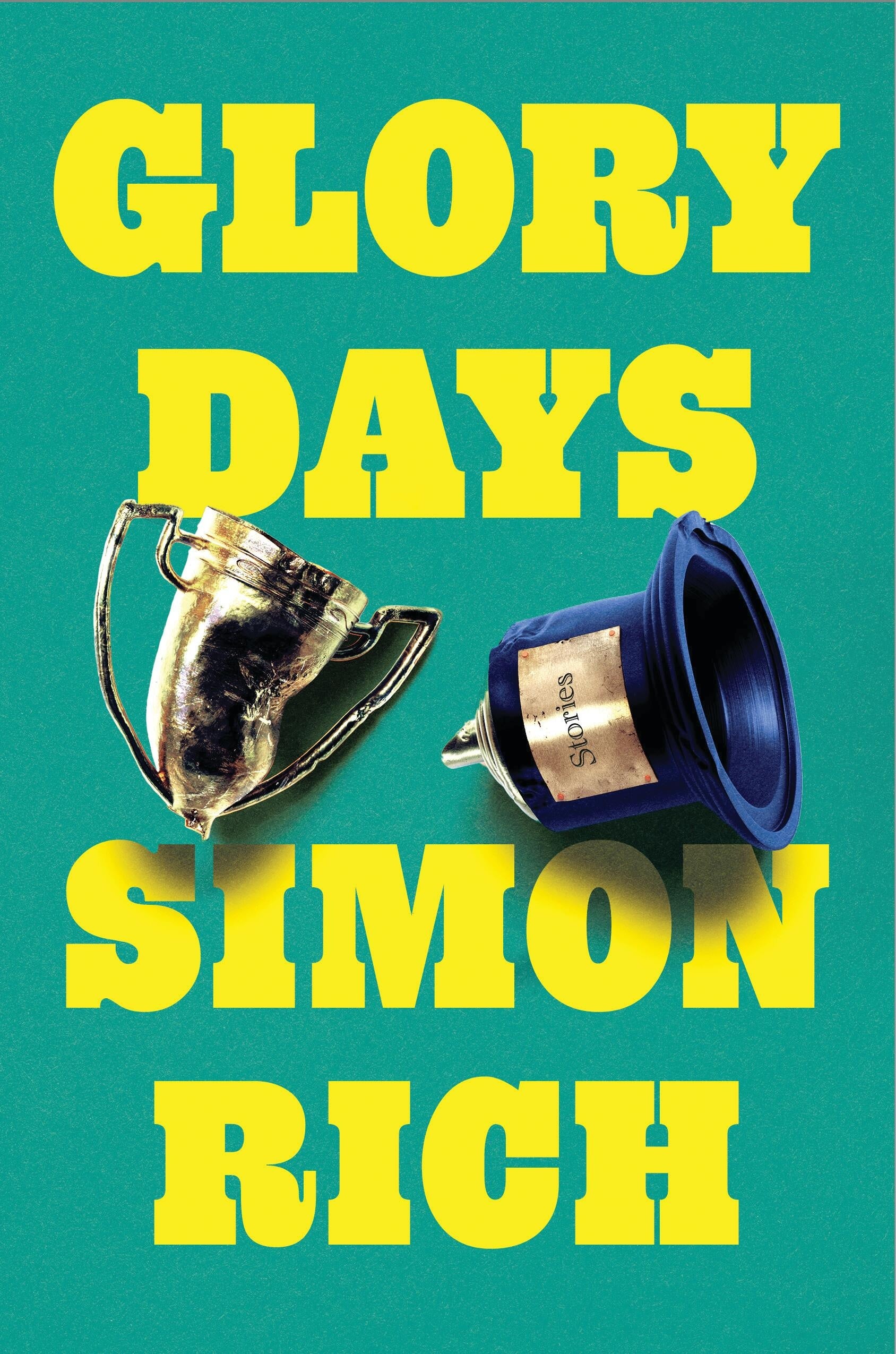Comedian John Mulaney has described Simon Rich as “TheStephen King of comedy writing.” Does this mean that Stephen King is “The Simon Rich of horror writing”? I should have asked Rich.
Rich’s latest book is “Glory Days.” It’s his 10th book, and it’s as funny as the first nine. Many of the characters are millennials who are worried about growing older. So it’s no surprise to learn that Simon recently turned 40-years-old. But he’s got nothing to worry about. Simon is aging gracefully.
Rich tells us why the world’s most famous two-dimensional plumber, Super Mario, is having trouble dealing with turning 40.
News with a little more humanity
WPR’s “Wisconsin Today” newsletter keeps you connected to the state you love without feeling overwhelmed. No paywall. No agenda. No corporate filter.
Rich also gives us the latest news about the ongoing rivalry between David and Goliath, why he enjoys writing from the point of view of inanimate objects — like New York City and a condom — and his upcoming Broadway debut.
The following interview has been edited for clarity and brevity.
Doug Gordon: Simon, “Glory Days” is your 10th book. You recently turned 40. How did this milestone affect the way you approached writing “Glory Days?”
Simon Rich: I’ve always been driven to write from an autobiographical perspective, even if I’m not literally writing memoir, because I always prefer to do it through a fictional lens.
One of the stories in this book is called “Mario,” and it’s about Super Mario turning 40, and it’s told from his perspective. And he’s grappling with all kinds of midlife headaches. The biggest thing is that he just desperately needs back surgery. He’s just he’s riddled with with arthritis from running, jumping at full speed for the entirety of his life, just smashing bricks with his face in his head.
And so it’s about his struggle to kind of redefine what it means to be victorious in midlife. And that’s the thrust of the book. It’s a lot of characters who are pretty limited in their intelligence, and their skill and their sort of self-definition. And they all have to gain perspective and redefine for themselves what it means to win.
DG: The Mario story was one of my favorites. It was great. It was just very funny in the way you put the Italian accent in there. It was just a real pleasure to read that.
SR: Thank you. Yeah, he’s been saddled with this absurd way of speaking, which is this incredibly offensive Italian stereotypical patois. But instead in the book, he’s grappling with some very serious, heavy issues. And so he continues to speak that way, even when he’s talking about existential depression.
DG: Has writing “Glory Days” caused you to reexamine the choices that you have made in your own life?
SR: Yeah, for sure. There’s a story called “Goliath,”which is the David and Goliath story but told from Goliath’s point of view.
And it’s about Goliath basically being jealous of this younger generation that is coming up out of nowhere to usurp him. And I think that’s something that I certainly relate to. I think most people in their 40s, I would imagine, are wrestling with the reality that they’re not the young upstart anymore. There’s an entire generation or even two behind them that is coming for them for their turn at glory.

DG: You managed to combine the themes of obsolescence and aging in a great story called “The City Speaks.” Can you tell us about this one?
SR: Sure. “The City Speaks” is a story told from the point of view of my hometown, New York City. So it’s told from the perspective of New York City and the city since it was born about 400 years ago, has just been at war with young people. The young people never stop coming.
READING: They show up in groups of twos and threes and crammed themselves into my apartment, packing in so tight I can feel the walls begin to buckle. They toss cigarette butts in my gutters. They leave their empty bottles on my stoops. They dance in my best fountain because they mistakenly believe it’s the one from the opening of “Friends.”
On Saturday nights they swarm my west side to poke my cobblestones with their stilettos, and on Sunday mornings they sneak up my sidewalks with their brunch. (END OF READING)
SR: So he sends bedbugs into their tiny apartments and and rats to their neighborhoods and hits them with pollution and smog and everything. He can think of delays the subway but it’s not enough because a lot of the young people who moved to New York City, they have these creative ambitions. And that’s really the reason why they’re there.
And if they’re ambitious enough, they’ll stay even if their radiators make a clanking noise. Or if they get bit by a mosquito. And so the city always then has to up the ante and start destroying their dreams. And so the city makes them late for auditions. He loses their fiction submissions to “The New Yorker” in the mail.
DG: Very well said. Yeah. This isn’t the only time that you have written from the point of view of an inanimate object. Why do you take this approach?
SR: It sounds counterintuitive, but I really love the limitation of it.
Some of the objects I write about, their worlds are so limited that they’ve only seen a couple of things. “Unprotected” is from the perspective of a piece of contraception in a teenage boys wallet. And he’s literally only seen the contents of that wallet and that’s his entire world.
And the more limited, the more fun it is to to ultimately give them some kind of actual emotional payoff.




